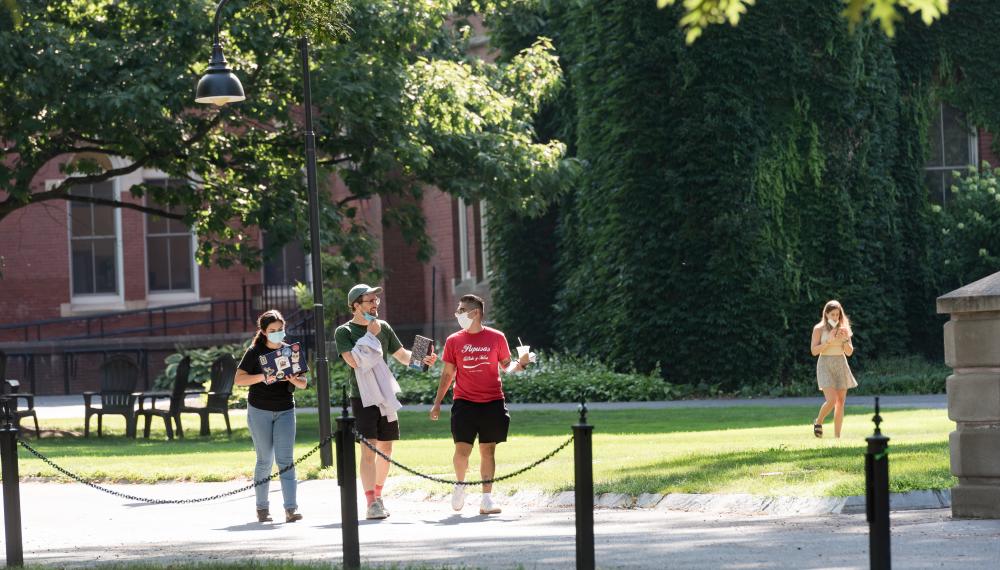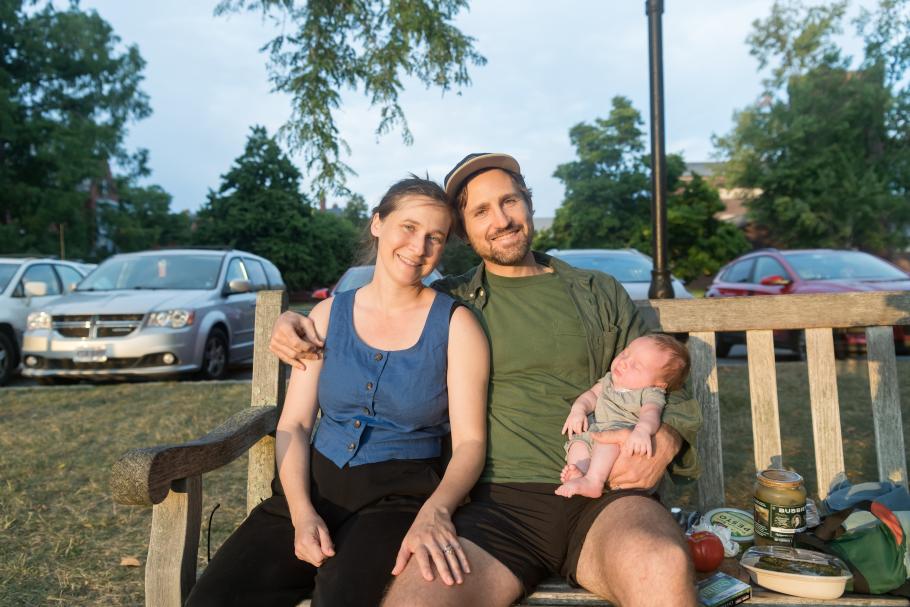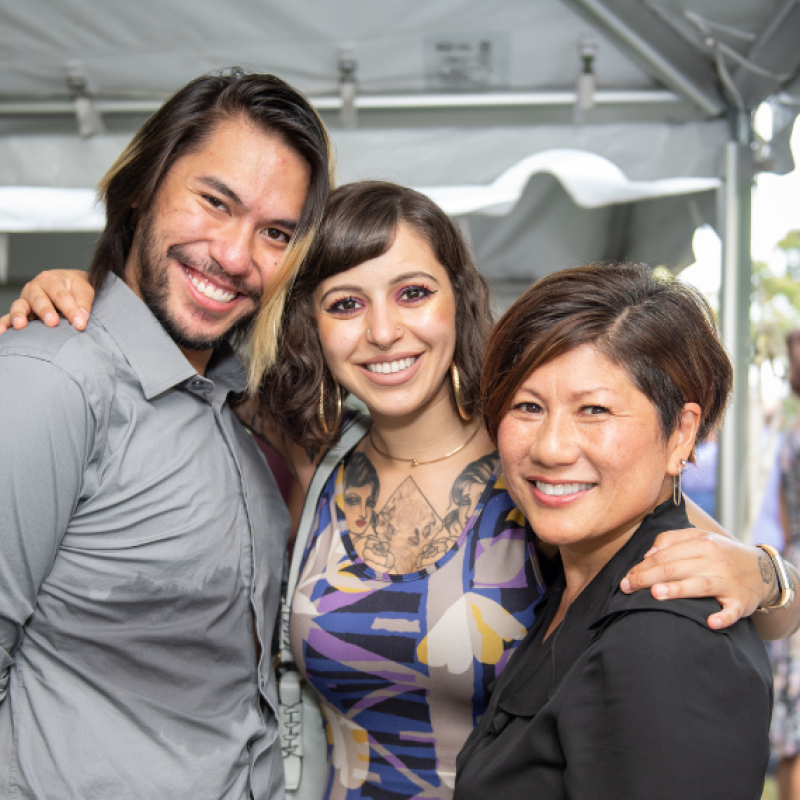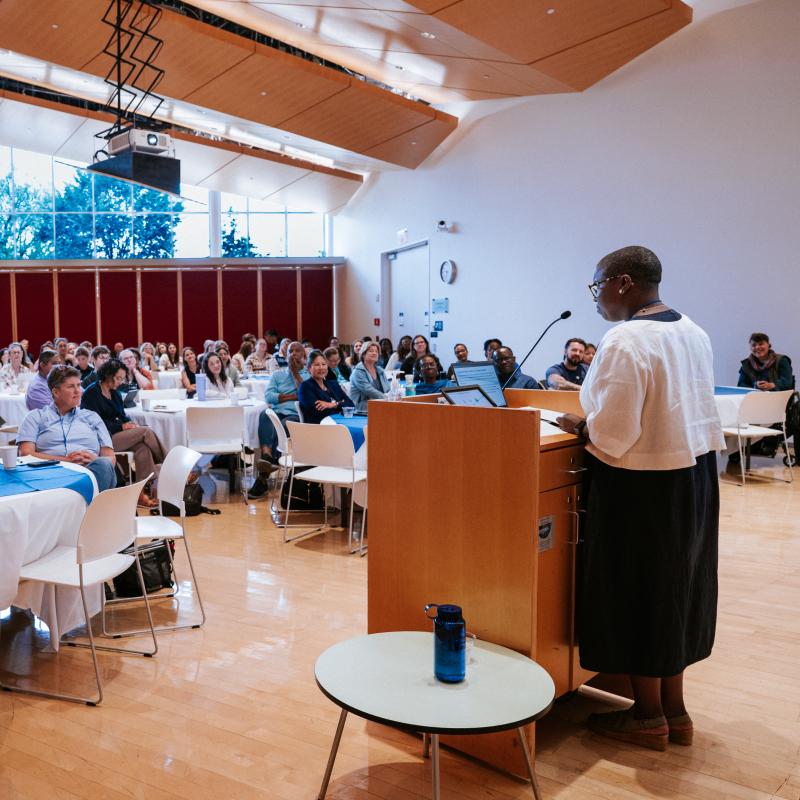
Theater may seem like a surprising route to social work, but for Derek Roguski it’s a logical progression. For more than a decade, he was involved in community-based theater in New Orleans, where participants use the tools of theater to engage anti-racism and education justice work. “I love that work and I felt like I could bring more to it by learning about trauma and how to hold space for trauma,” he said. “I felt like getting an M.S.W. might support me in continuing to develop those capacities.” Roguski was drawn to the Smith School for Social Work in particular because its clinical focus and social justice emphasis aligned well with his goals.

Roguski’s first year at SSW was particularly monumental because he and his partner had their first child just as he entered the program in 2022. Juggling parenthood and education has made him particularly appreciative of this opportunity and his family’s support.
“To be in a formal learning environment, getting to read, think and write about things that I really care about and learn from my peers and some really great professors just felt like a real privilege.”
For his first internship, Roguski worked with the Adult Community Clinical Services (ACCS) Team at Service Net in Greenfield, meeting one-on-one with clients who have struggled with severe mental health challenges. The team takes a Recovery-Oriented Cognitive Therapy (CT-R) approach, doing enjoyable activities with clients like hiking, playing chess and even skateboarding. “The idea is that it builds energy and it helps people activate their capacities to be more creative and more open to doing things differently that might support their recovery.”
CT-R dovetails nicely with Roguski’s passion for theater, and he’s developed a group for Service Net’s clients called Arts and Awareness. It’s broadly designed, giving clients space to create art, but also engage in meditation, movement, or theater work if they choose. Being more playful and getting distance, in Roguski’s experience, helps clients get unstuck: “We’re looking at our lives, our story of our life, in a more imaginative way.” It’s the freedom to approach therapy in this way that makes Roguski feel that social work is such a good fit. “I’m somebody that is really drawn to integrating different things, different approaches, and social work as a field makes a lot of space for doing that kind of thing.”


